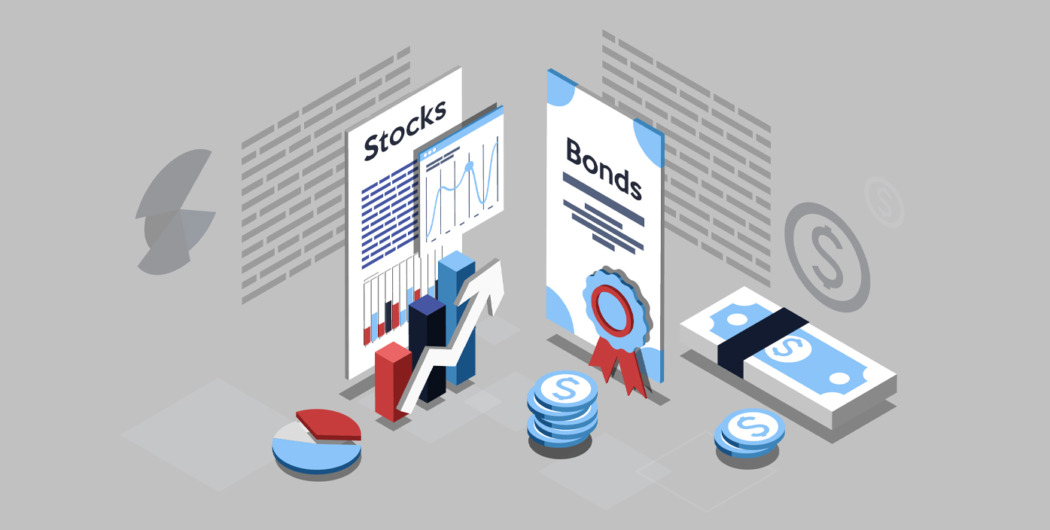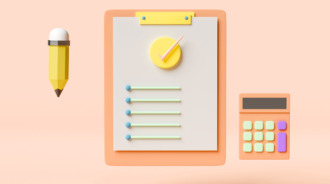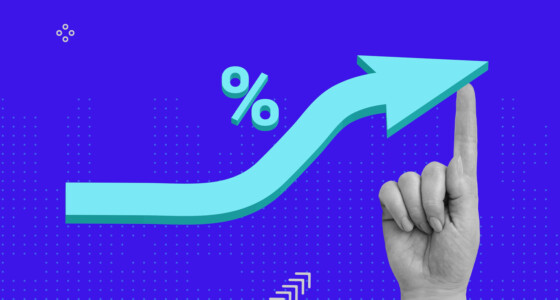

There are a huge variety of tools in the financial universe, and each has its own specifics. Investment bonds, like most other capital market instruments, are used to raise funds for the company’s development. They have their own parameters, and, surprisingly, the price is not the key one, although it carries certain information for the investor. For example, an experienced trader can immediately determine whether a company has problems with a particular loan by the price level of a bond.
It’s becoming easier to invest, and more and more users are coming into the market. The text below will explain what is the meaning of bond and how to invest in this instrument profitably!
Bond meaning in finance
Did you know that the word “investment” itself came from Latin? Moreover, its meaning didn’t correspond to the modern definition at all — initially, it was translated as “to dress something”
To answer the question of what is a bond in simple terms, we could say that it’s one of the varieties of securities. Bonds are the closest alternative to bank deposits on the stock market. These are securities (debt obligations of companies or the state) that work according to approximately the same principles as a bank deposit. You buy a bond for $100, and a year (or any other agreed period) later the company or the state undertakes to return this amount plus a fixed percentage, which can be paid out quarterly, semi-annually, or annually.
Bonds are issued for a certain period. It can be 1, 2, 3 years or more. If you decide to sell the bonds ahead of schedule, for example, in six months, then in case of a favorable market situation, you can return their full value and receive interest for these six months in full.
Types of bonds
We’ve solved the question about what is a bond in finance and are ready to move on with this knowledge about the market. Now that the investor has already decided to put money in this particular security, it’s time to discuss bond types.
Bonds have been actively sold for approximately the last two centuries. In the past, these papers were somewhat similar to banknotes, now the bulk of bonds exist in digital form, but the transition to the digital form has not changed their essence.
These securities are divided by the type of issuer:
- Government bonds. They are issued by the main bank of a country and other official financial organizations. Government bonds are considered the most reliable, but the income on them is relatively low, government bonds can bring in 1-2% percent or even less.
- Corporate bonds. This type is issued by large enterprises in various industries. For them, it’s just a way of borrowing and raising funds. And for buyers, this is an opportunity to earn significantly more than on bank deposits. Corporate bonds can bring 5-15% per annum.
- Exchange-traded bonds. These are a variant of corporate bonds that are issued by the exchanges themselves, usually for a short term.
Which bonds to choose depends on the type of your portfolio and your ultimate goals.
Buying bonds: what is the bond market?
Basically, there are three ways to invest in bonds:
- Open a brokerage account. You can purchase bonds by opening an account with a brokerage company. To do this, you should first choose a broker. The broker opens a brokerage account, helps install a trading program on your computer, and explains how to trade.
- Open an individual investment account. An individual investment account is a kind of brokerage account, but it was conceived by the authorities so that ordinary citizens would start buying stocks and bonds. It can also be opened through a broker. There’s a limit on the number of accounts: one account per person.
- Buy mutual funds. If you don’t want to fuss around with trading programs or look for the right paper, you can invest in bonds through a management company. To do this, it’s enough to buy a share in a mutual fund (mutual investment fund). The mutual fund is a large portfolio with bonds of companies from different industries. All the questions and problems that arise are solved by the manager.

Why do people buy bonds?
There are many reasons why people and firms buy bonds. They come with numerous benefits, so many consider that not buying them would be a huge mistake.
For instance, investors purchase bonds because:
· Bonds that are held until they reach maturity allow bondholders to receive back the whole principal, which means that capital can be preserved when making investments.
· Bonds can represent a very predictable influx of income. They can pay interest twice annually.
· They can counteract exposure to rather volatile stock holdings.
Governments, municipalities, and companies can also issue bonds in order to obtain more money. Usually, they can get cash for:
· Debt financing
· Offering operating cash flow
· Helping fund capital investments in projects like hospitals, highways, schools, and others
What are the benefits and risks of bonds?
As you can imagine, bonds have both pros and cons, but the benefits outweigh the drawbacks. For instance, bonds can:
· Provide a way to preserve capital and get predictable returns
· Serve as a steady income influx from interest payments before reaching maturity
· Any interest that comes from municipal bonds will not usually have to deal with federal income tax
· They are exempt from both local and state taxes for people who live in the state where the bond issuing took place
At the same time, it’s crucial to be wary of potential risks. Bond investments come with credit risk. If the issuer doesn’t make principal or interest payments on time, it can default on the bonds.
Not to mention that inflation can also affect bonds, making things risky for people who get a fixed interest rate. There is also a liquidity risk. Investors may not be able to find a market for the bond – therefore, they may be unable to purchase or sell whenever they want.
The value of a bond can also be affected by interest rate fluctuations. Interest rates may change, putting the investor at interest rate risk.
Simple arithmetic shows that investments in bonds are profitable. Having studied this tool, you can get a yield of more than 12% per annum. To do this, you’ll have to open a brokerage account, explore the market and pay commissions for broker services, and sometimes income tax. Now, knowing the bond definition and some of its features, you’ll be able to study the issue in more detail and understand whether you need to become an investor.









